
REW’s high school graduation picture. (Peru, Indiana)

This image was probably taken sometime during REW’s freshman year at the John Herron Art Institute. REW is in front holding a ball.

An image from about 1935 of the John Herron Art Institute student body. Right in front is REW crouching and looking very young. He was thrilled to be a part of it all. The encouragement of Donald Magnus Mattison (on the right in the suit) lead REW to enter national competitions to great success.
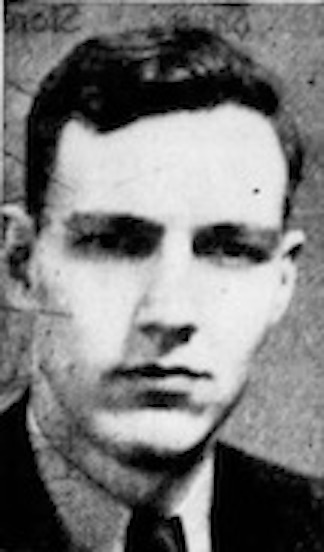
REW about 1937.

REW with fellow art student George Prout. This was taken probably around the time that they both won their national prizes to study overseas. REW the Chaloner Paris Prize, and George the Milliken Prize. They were the class clowns that were always doing some strange ad-hoc circus act. REW was known to walk to his classes on his hands.

REW as a student at the John Herron Art Institute, probably 1936. Here we see REW with some of his classmates mugging for the camera. From left to right: Jim Gant, REW, Joe Cox, Harry Davis and Loren Fisher. REW, Harry Davis, and Joe Cox would remain lifelong friends. Fisher and Cox would go on to become New Deal muralists. Cox eventually moved to North Carolina to teach at North Carolina State University. Harry Davis would be a winner of the Prix de Rome, and become best known for his paintings documenting Indianapolis architecture and lifestyles. He would teach at John Herron along with REW. Of course REW, became one of the great painters of the American circus, an illustrator and a muralist as well.

This image captures REW sketching in his New York studio. He produced some of his best early work there prior to departing to Europe for overseas study as the 1937 winner of the Chaloner Prize.


While sailing to Europe aboard the CGT Liner Champlain as a result of winning the Chaloner Prize, French circus performer Rene, and German ballet dancer Katta Sterna joined REW in some ad-hoc performances for fellow passengers. REW is seen on the left. REW left New York for Europe on May 25, 1939.

REW in Paris with his new Mercier bicycle. He and fellow Herron student Harry A. Davis cycled much of northern France during the summer of 1939. Following France’s declaration of war with Germany on September 3, 1939, REW departed Paris aboard his Mercier to get to Le Havre to escape the oncoming German invasion. The bicycle is still extant.

REW traveled extensively via bicycle during his time in Europe. His Mercier bicycle is still extant.
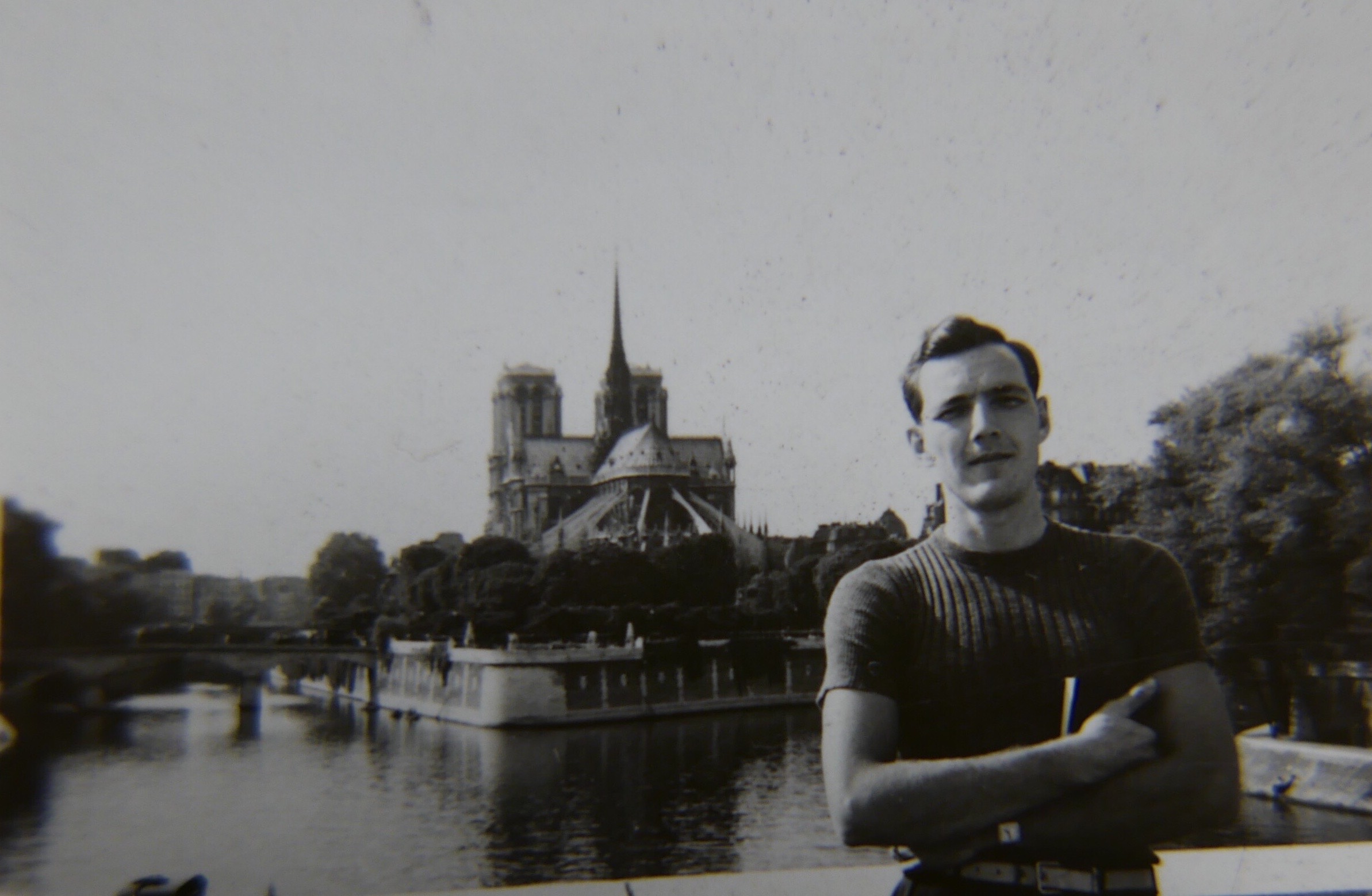
REW on the Pont de la Tournelle with Notre Dame in the background. REW lived at the Hotel Liberia, 9 Rue de la Grande -Chaumiere, Paris.

REW during a lifeboat drill aboard the Fort Richepanse on his return home to the U.S. after urging by the American embassy to leave. He would arrive back in New York on October 2, 1939.
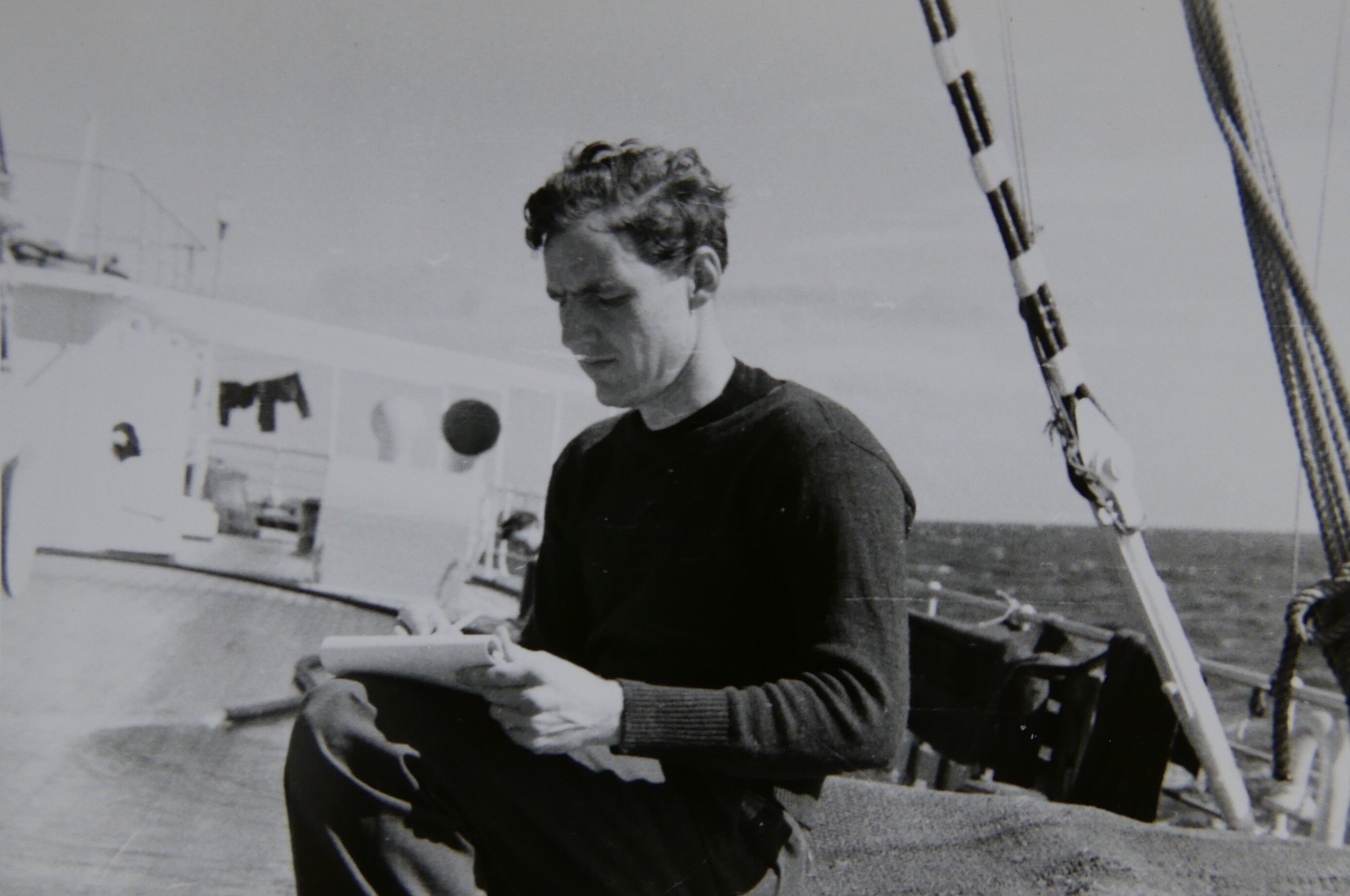
Eternally sketching, even during his escape from Europe. This was probably taken in late September 1939. He arrived back in New York on October 2, 1939.

As part of his overseas study obligation as winner of the Chaloner Prize Prize, REW studied mural painting in Mexico. Here, he takes a moment in (possibly) Veracruz to contemplate things, and take in the sea breeze.

To travel home before WWII, REW purchased a Delage DS8. The car that he had originally purchased was involved in a fire at the dealership in New York City. The Delage was offered to REW as a consolation. It is not known where this image was taken, although the license plate says, “Indiana 41.”

Robert Edward Weaver upon his graduation from Officer Candidate School at Ohio State University. c. 1943

LT (jg) Robert E. Weaver. Taken shortly after REW’s arrival at the Alameda Naval Air Station, Alameda, CA
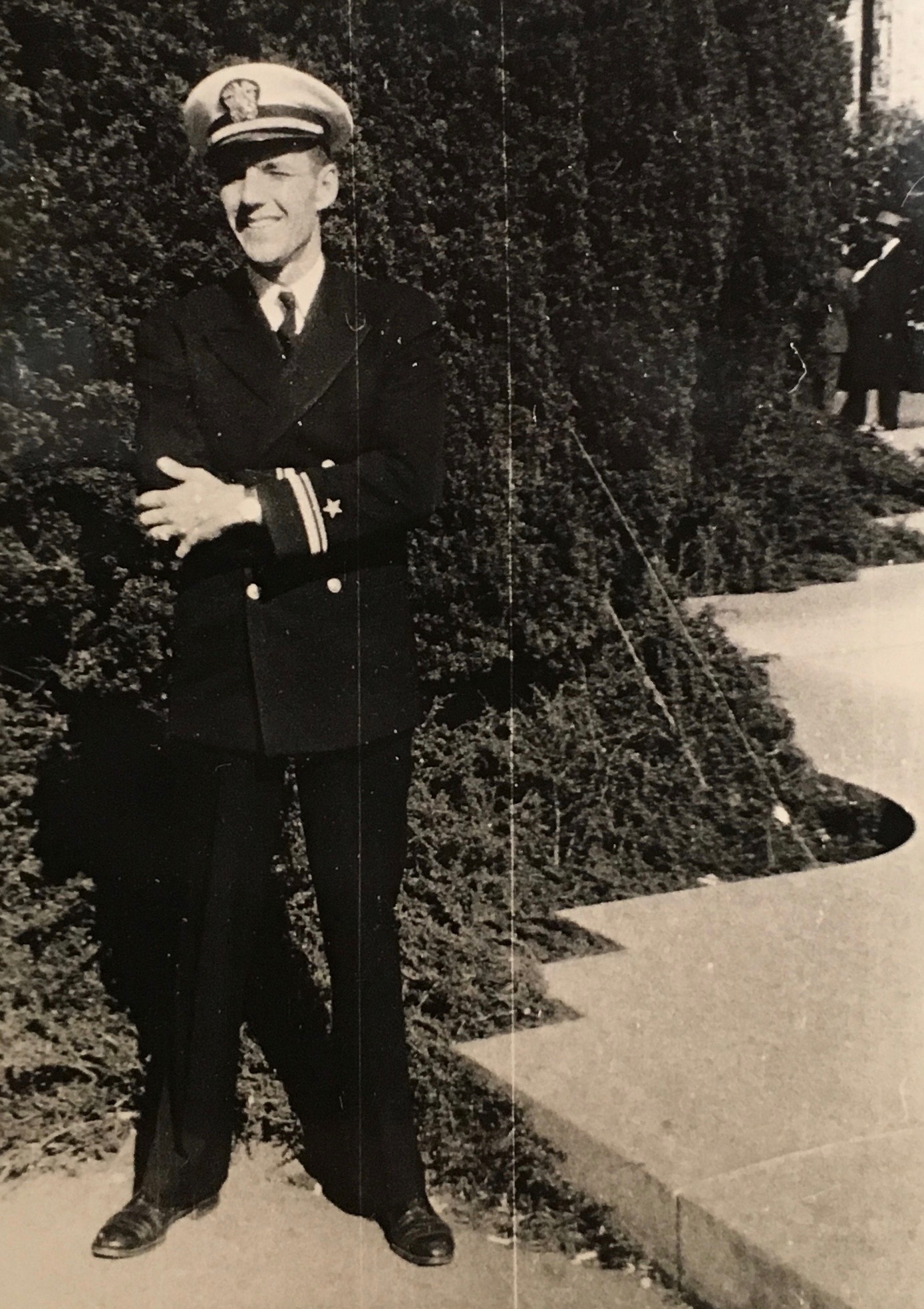
LTjg REW would paint several murals for the Bachelor Officers Mess at the Alameda Naval Air Station before he shipped-out to the South Pacific and duty with Rescue Squadron VH-3.

Weaver sketching on Saipan, WWII.
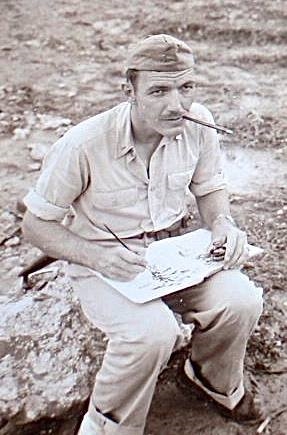
This image of REW was taken somewhere in the Okinawa theater of operations during WWII. Robert Edward Weaver was stationed with Rescue Squadron VH-3 near Kerama Retto.
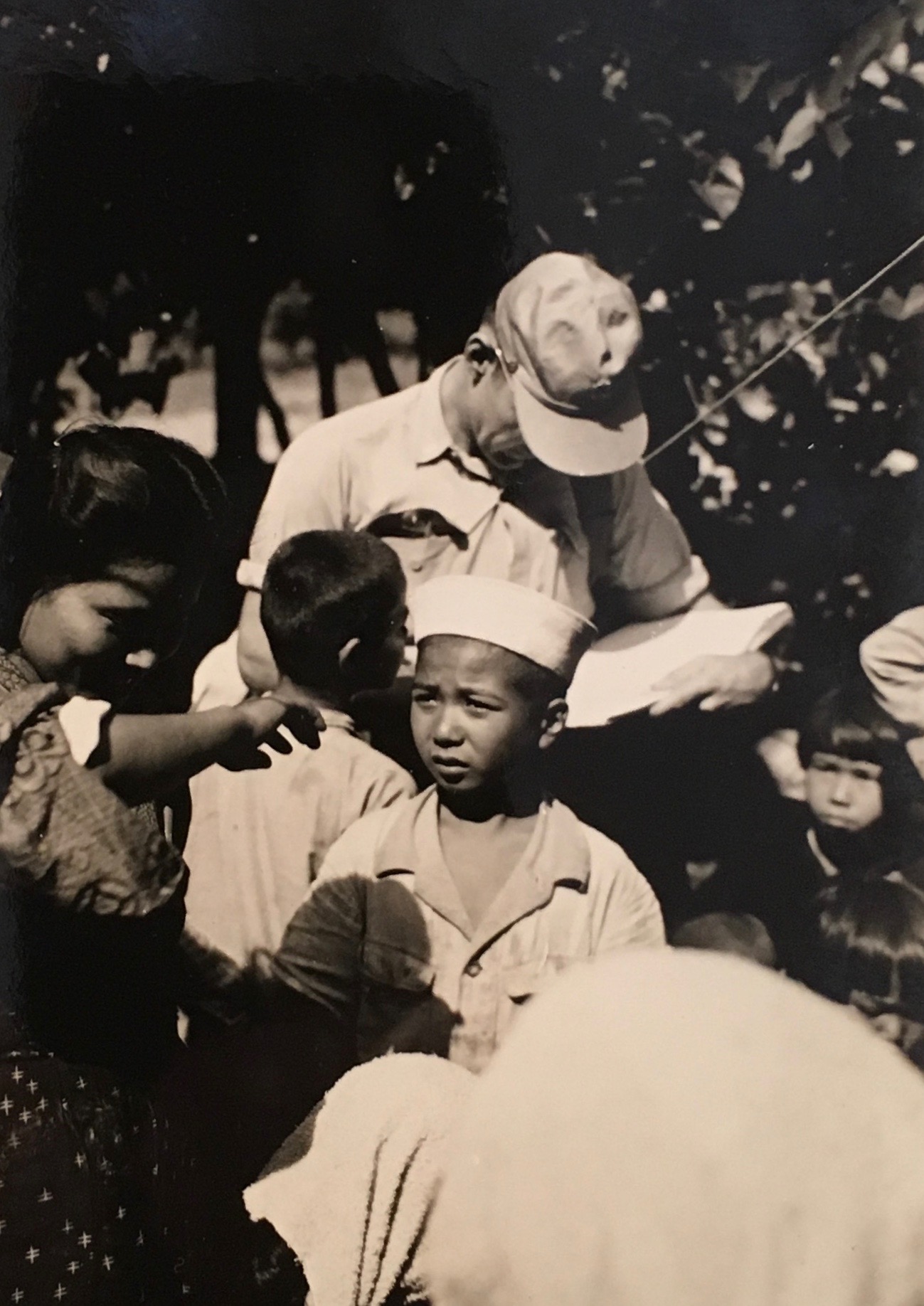
REW drawing for children on Kerama Retto.
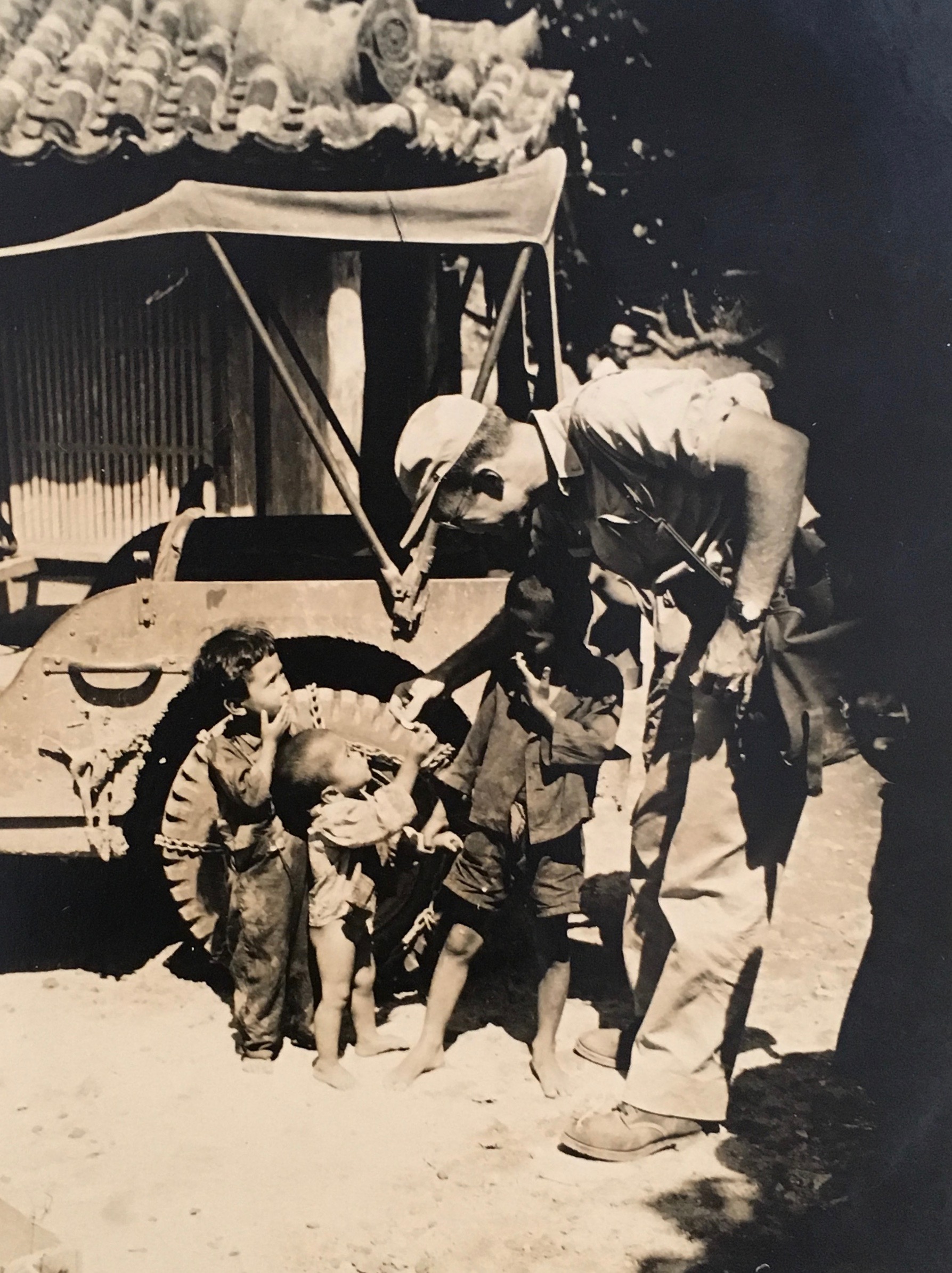
REW sharing rations with children at the end of WWII on Okinawa.
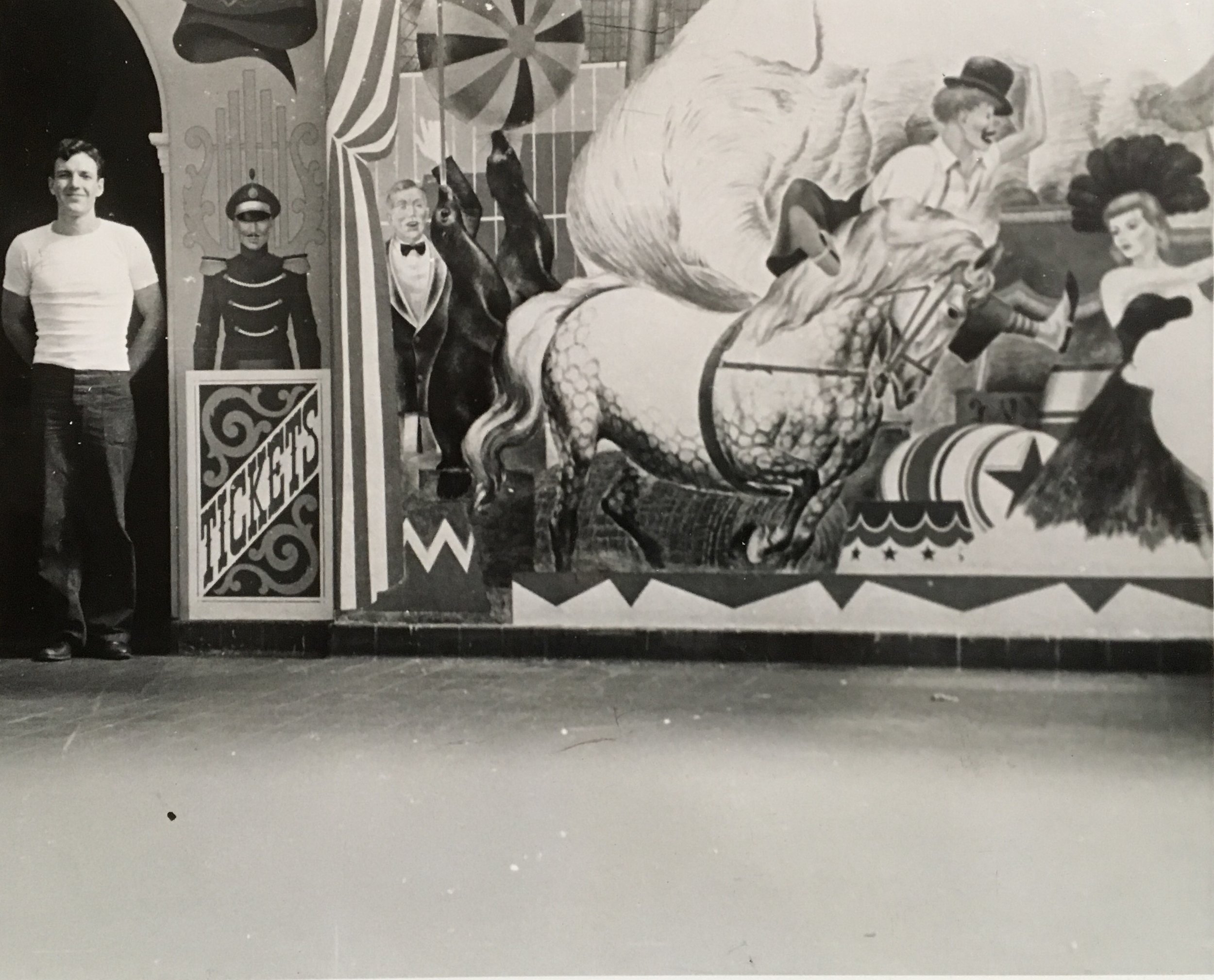
In 1946 REW was commissioned to create a mural for the entrance to the Indianapolis Methodist Hospital's Children's Ward. Here the artist poses next to his work as he was creating it.

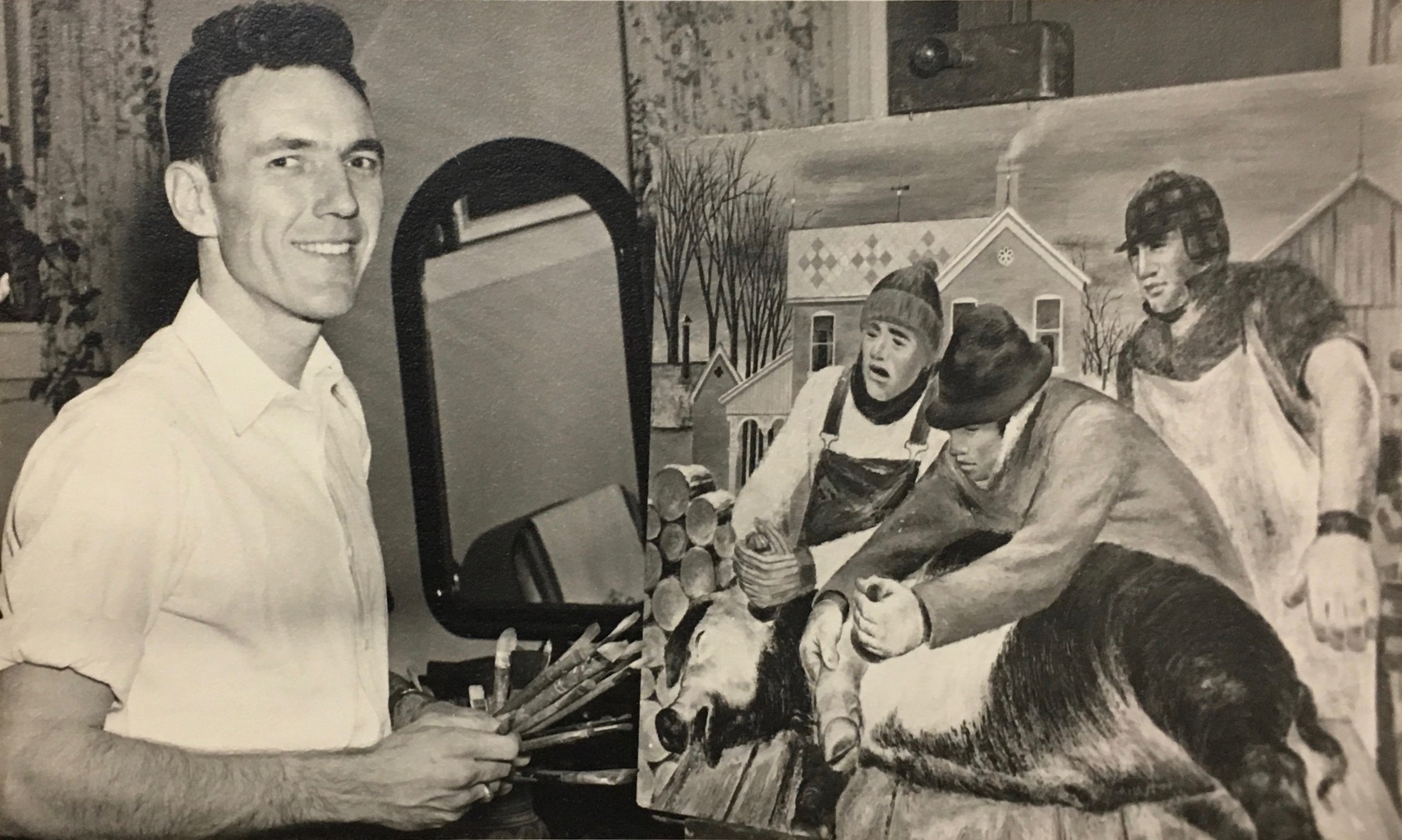
REW is seen here in his studio located on Main Street in Peru, IN. He is with his prize winning work "The Butchering" which was shown at the National Academy of Design in New York City, NY in 1949.
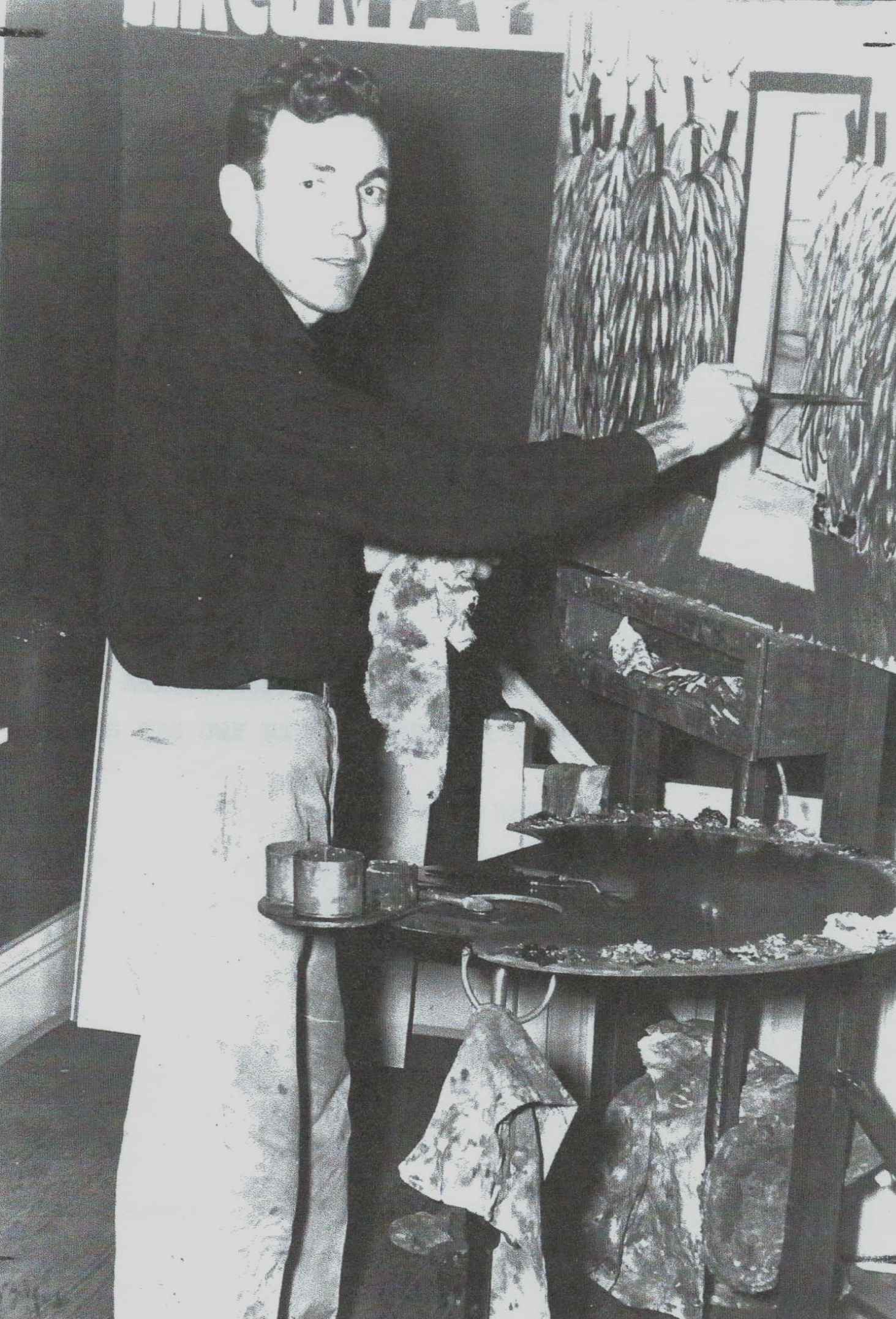

This image is probably from 1958. From left to right REW’s younger son Mark, himself, his wife Betty, and oldest son Matthew.
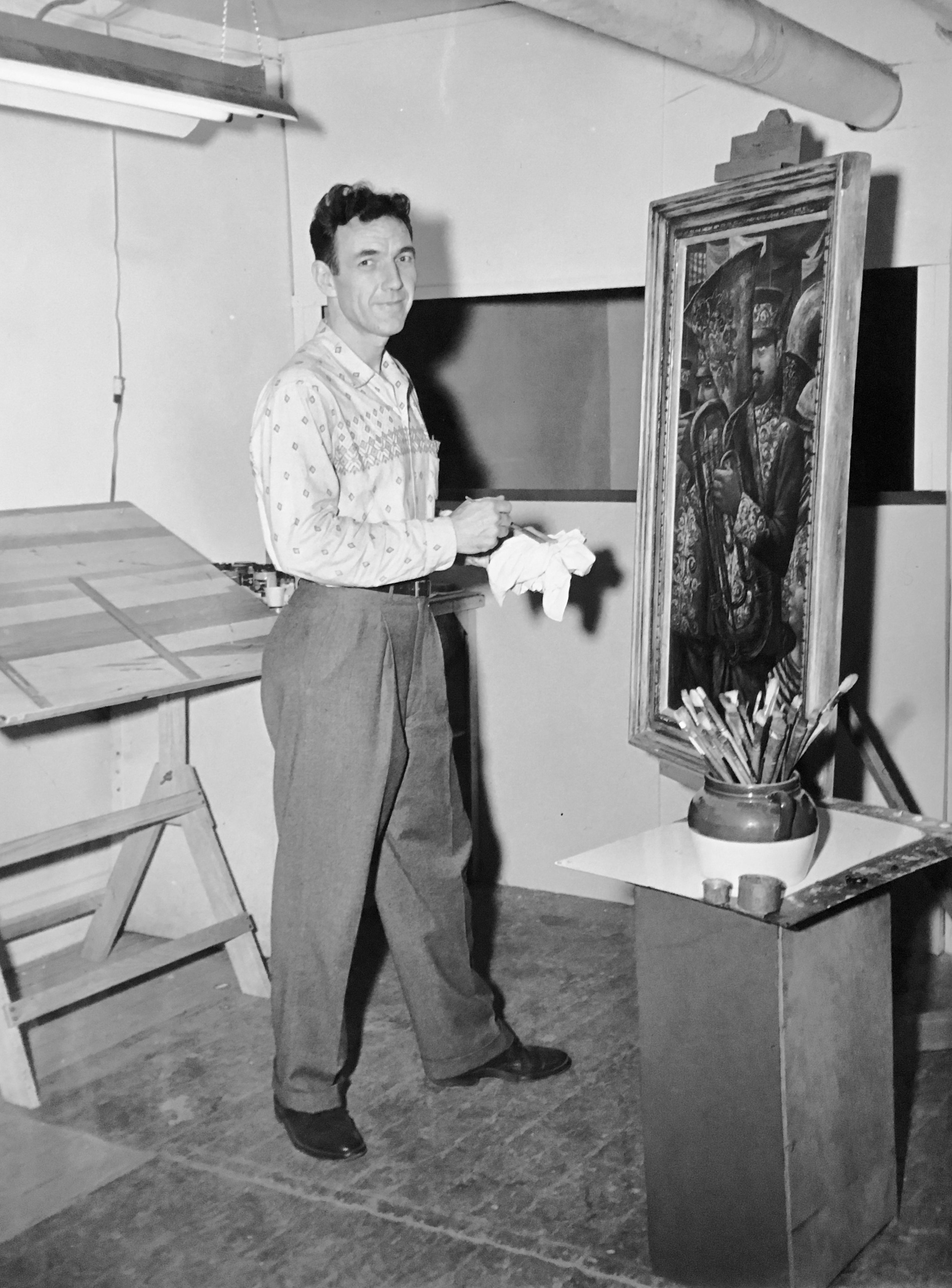
REW in his studio at the home he built for his mother in Peru, Indiana. This is a posed image of REW with his work "Brass Band."
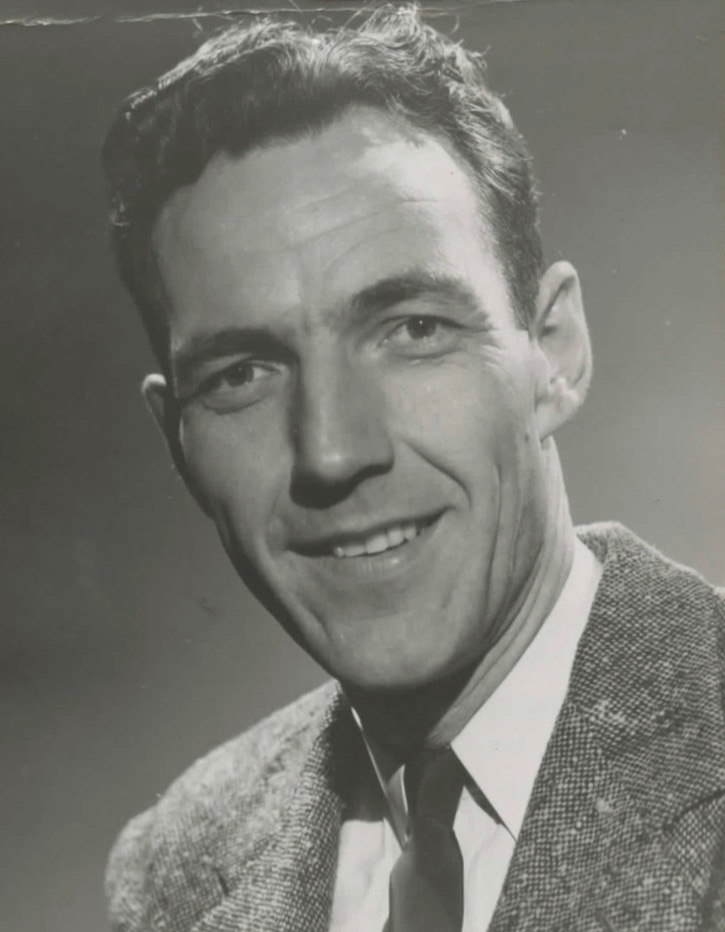
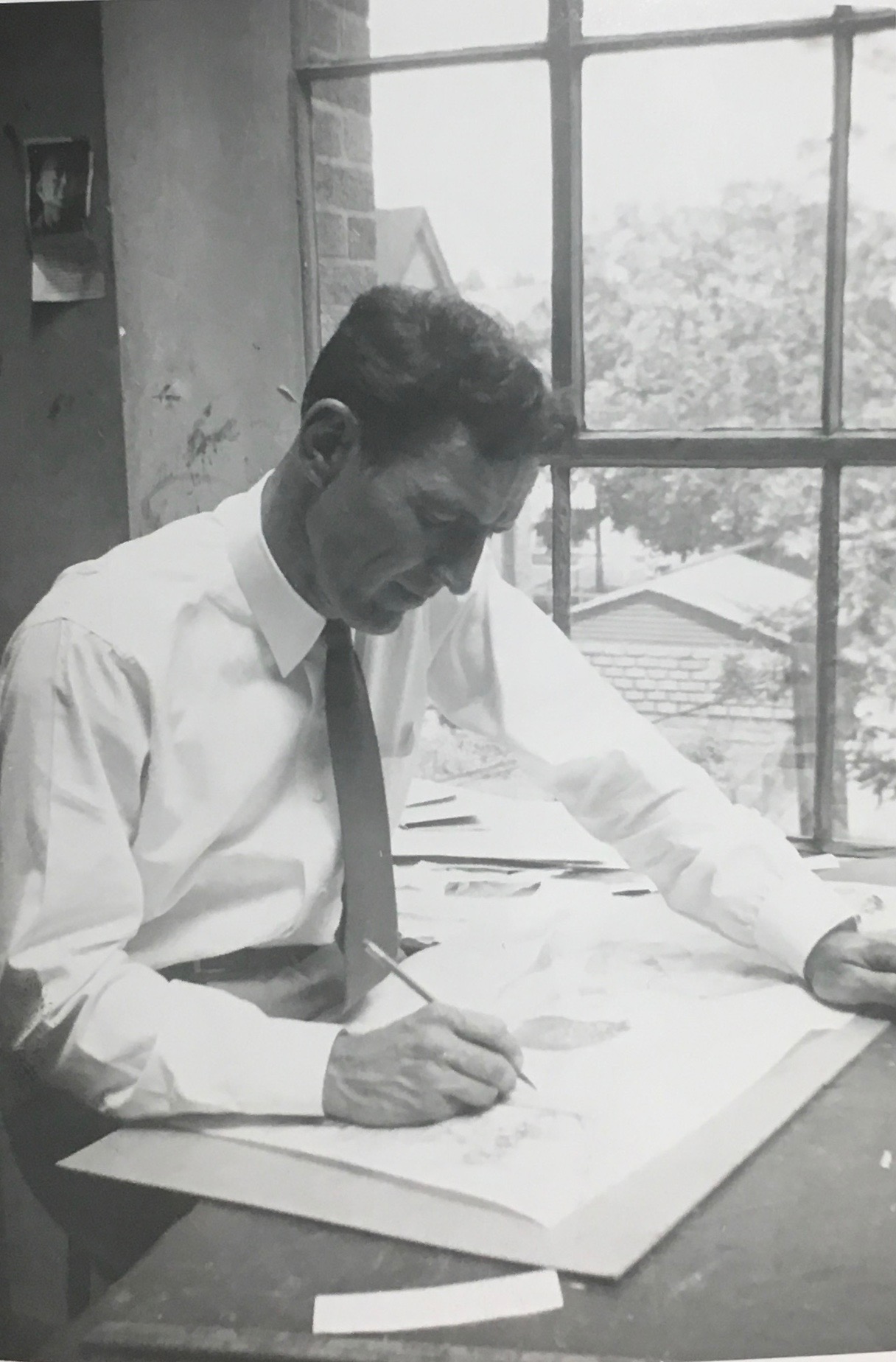

Herron Art Institute 1938 classmates L-rR: J. Merrell “Doc” Johnson, REW, Paul A. Wehr, Harry A. Davis, and Bill Peet.
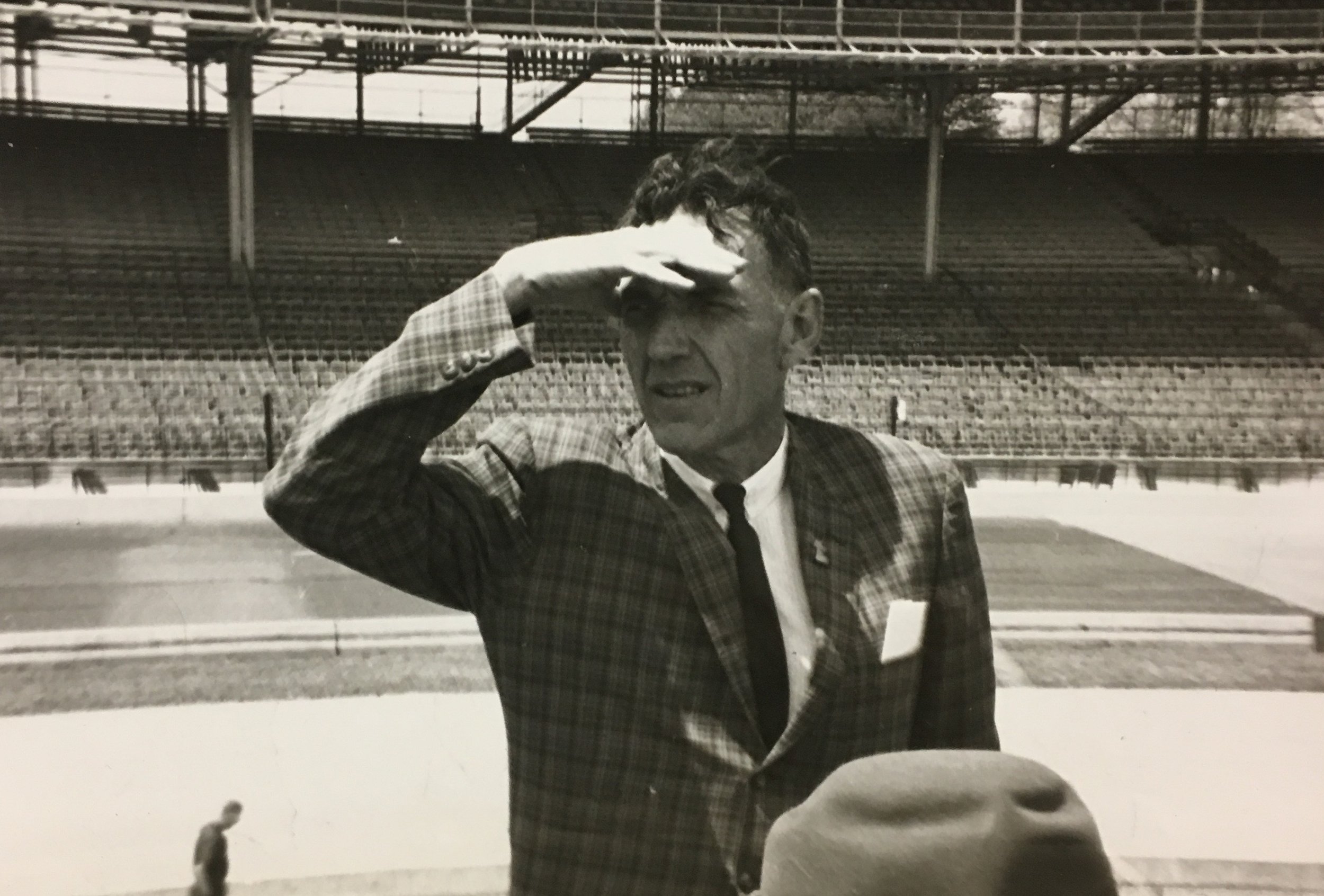
Each year REW would take his art students to the Indianapolis Motor Speedway (IMS) to sketch and experience the state’s greatest sporting event. REW was a long time friend of speedway president Tony Hulman, and many of REW’s racing artworks are on the campus of the IMS.
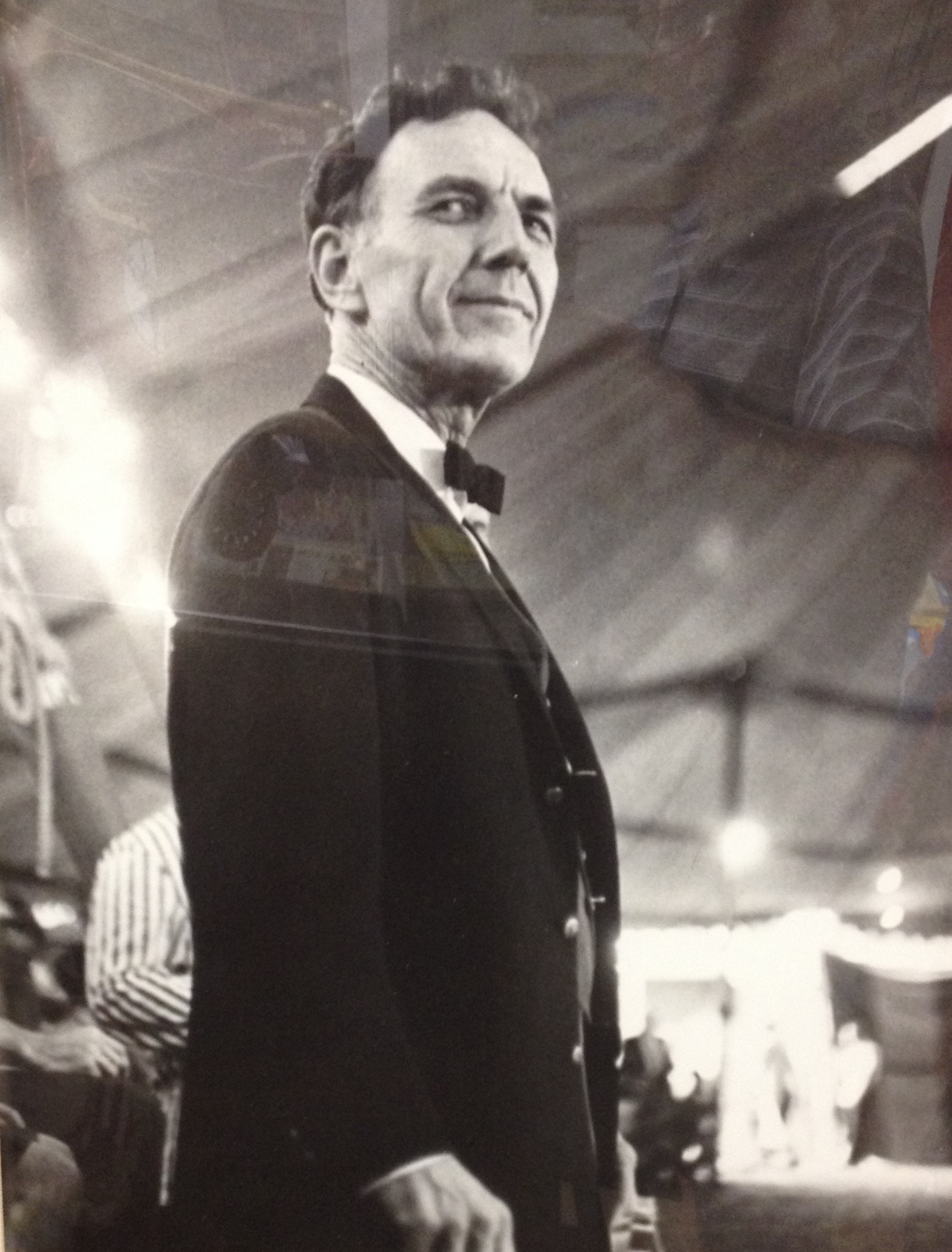
REW for the first several years of the Circus City Festival Incorporated acted as one of the circus's ringmasters. This image is from the early years of the festival which were under a tent prior to the construction of the CCFI's permanent location.
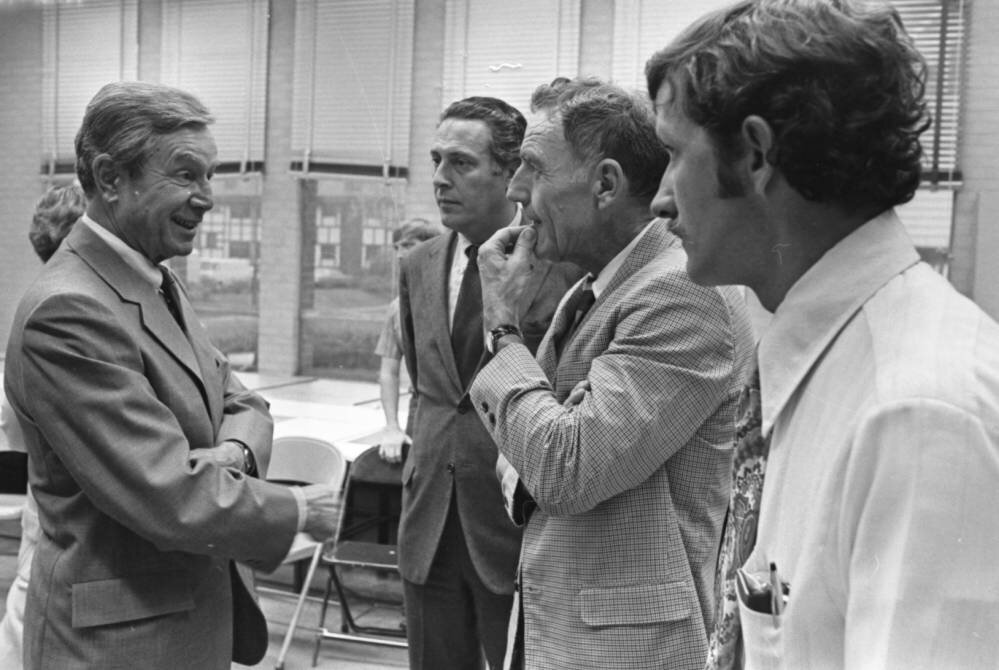
Indianapolis Motor Speedway president Tony Hulman (left) confers with Herron School of Art dean, Benjamin de Brie Taylor (center), REW, to his left, and an unknown person at the establishment of Hulman 500 Art Competition, proposed by REW and supported by Mr. Hulman. (IUPUI image collection)
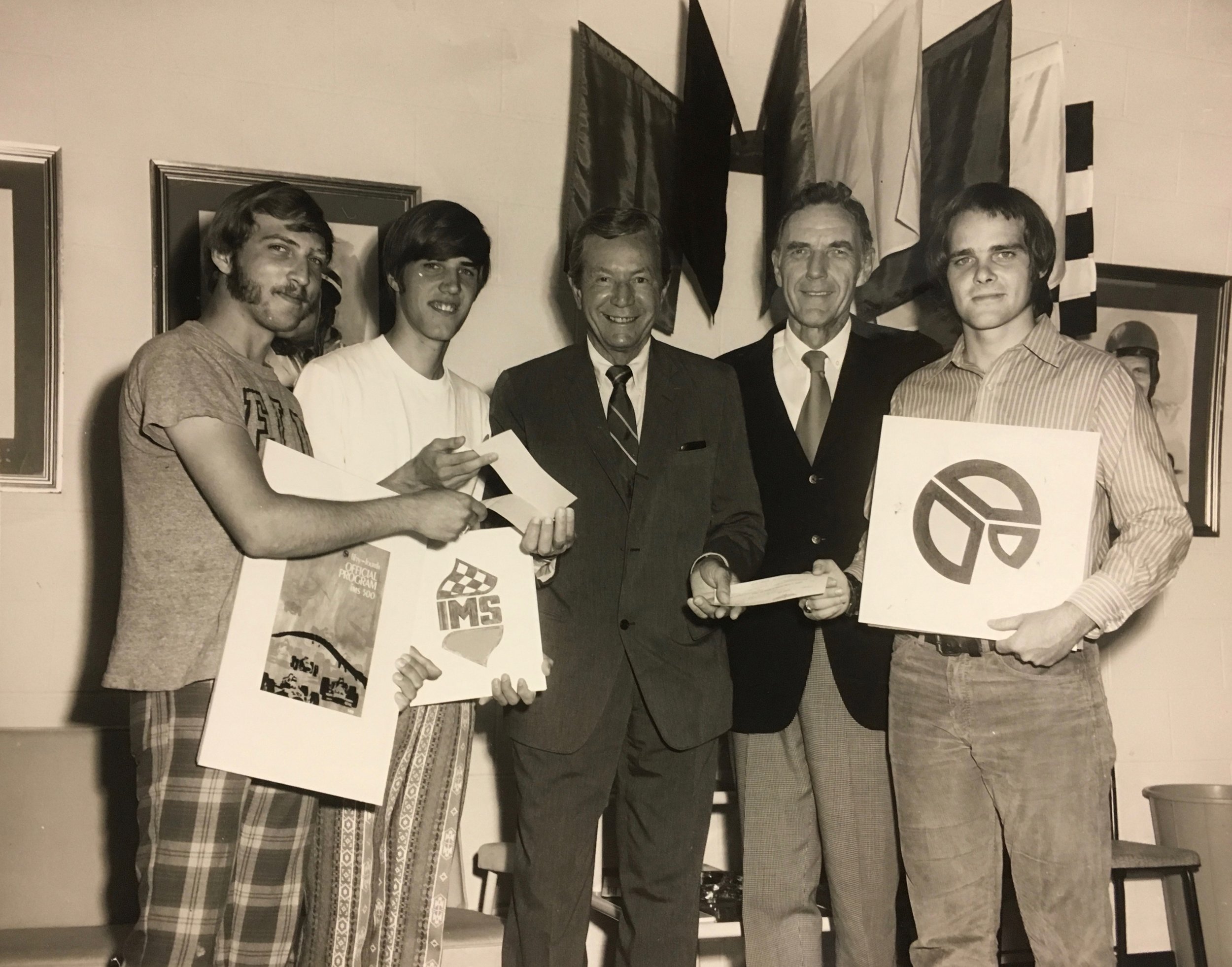
REW was a long time friend of Indianapolis Motor Speedway president Tony Hulman. Their friendship resulted in the Hulman Prize for Design during 500 race week in Indianapolis. The competition was open to students at the John Herron Art Institute. From left to right: Larry Profancik, Warren Low, Mr. Hulman, REW, and Mark Miller.
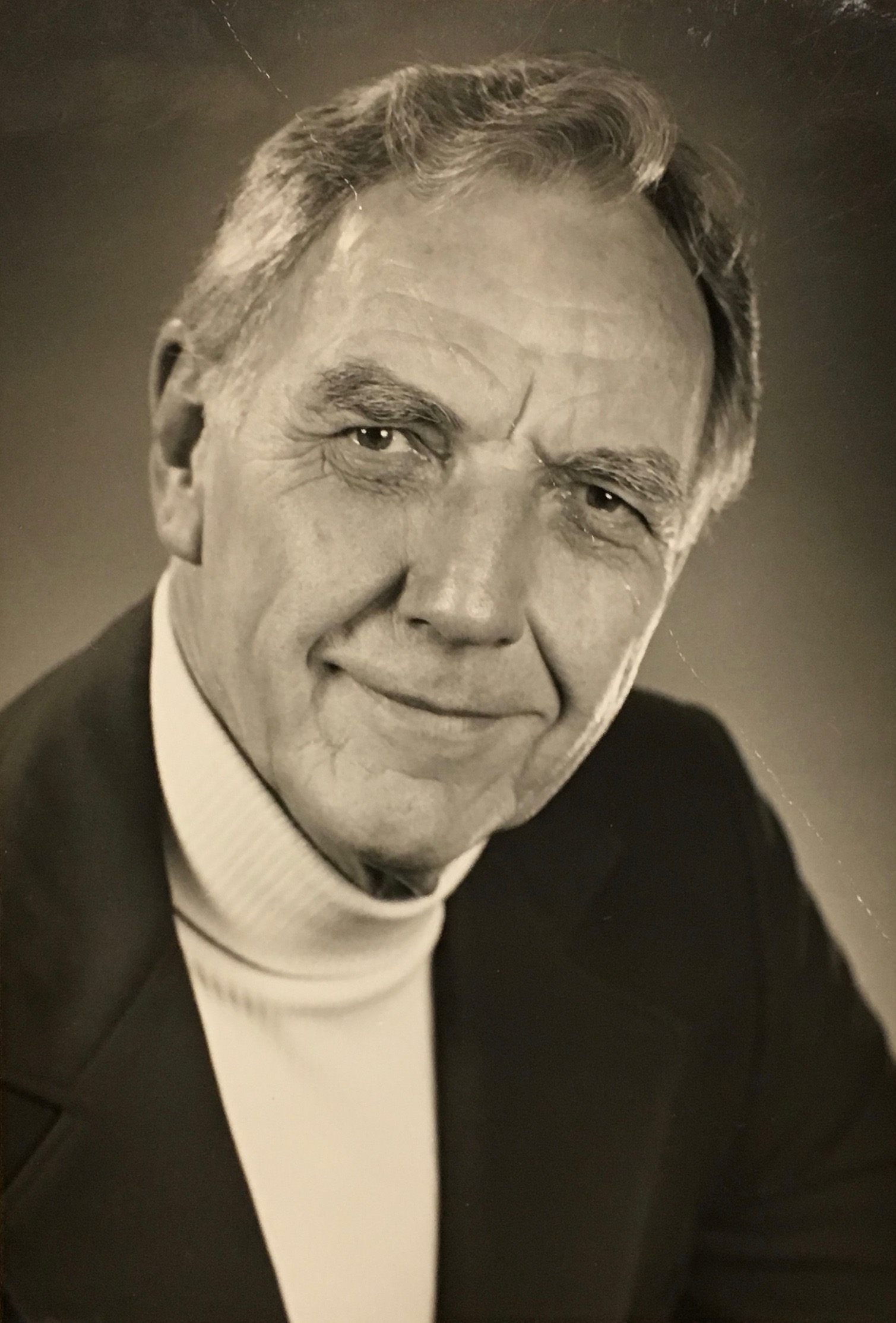

REW at the time of his retirement from Herron School of Art, Indiana University/Purdue University, Indianapolis, IN.
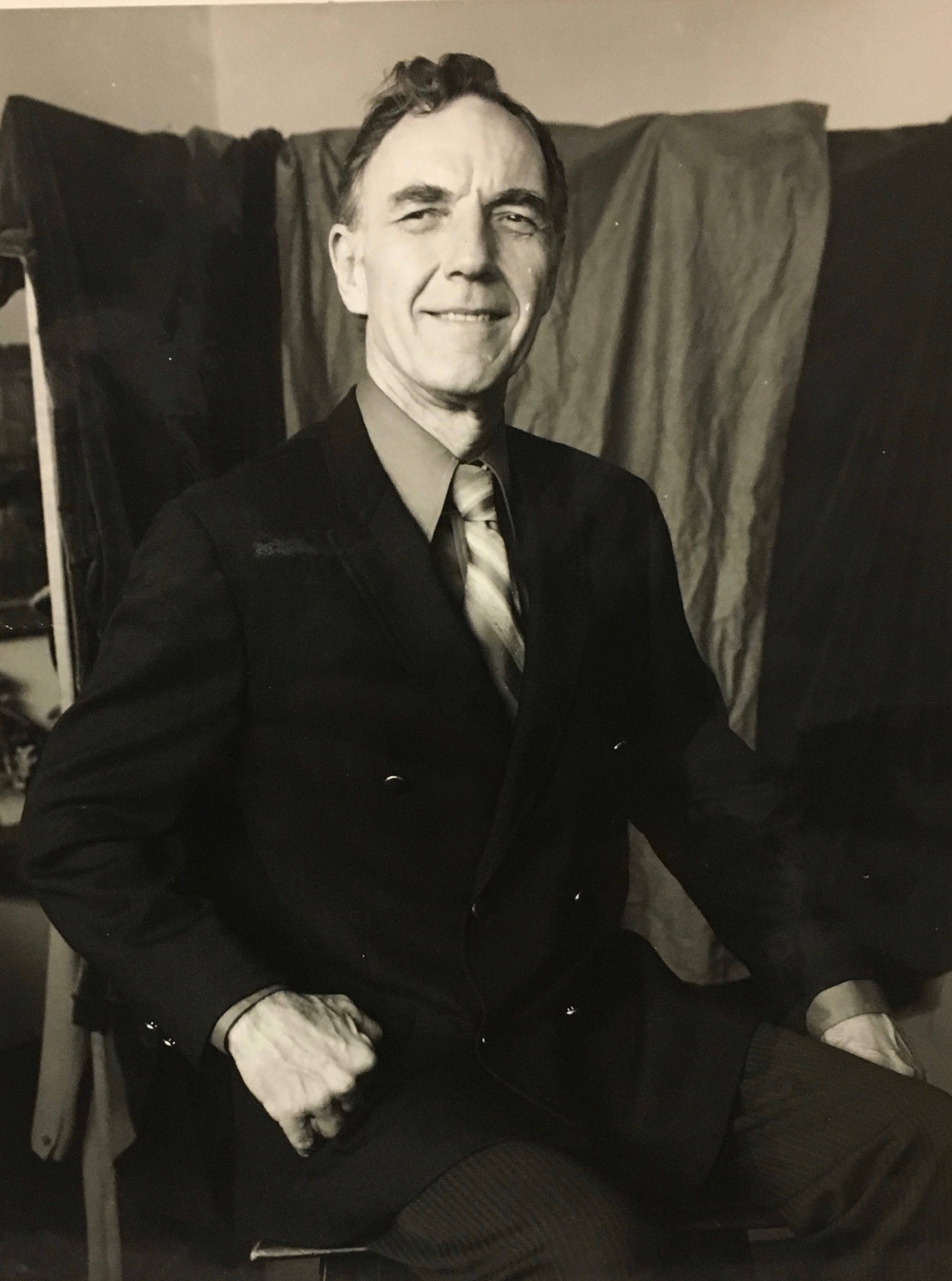







































REW’s high school graduation picture. (Peru, Indiana)
This image was probably taken sometime during REW’s freshman year at the John Herron Art Institute. REW is in front holding a ball.
An image from about 1935 of the John Herron Art Institute student body. Right in front is REW crouching and looking very young. He was thrilled to be a part of it all. The encouragement of Donald Magnus Mattison (on the right in the suit) lead REW to enter national competitions to great success.
REW about 1937.
REW with fellow art student George Prout. This was taken probably around the time that they both won their national prizes to study overseas. REW the Chaloner Paris Prize, and George the Milliken Prize. They were the class clowns that were always doing some strange ad-hoc circus act. REW was known to walk to his classes on his hands.
REW as a student at the John Herron Art Institute, probably 1936. Here we see REW with some of his classmates mugging for the camera. From left to right: Jim Gant, REW, Joe Cox, Harry Davis and Loren Fisher. REW, Harry Davis, and Joe Cox would remain lifelong friends. Fisher and Cox would go on to become New Deal muralists. Cox eventually moved to North Carolina to teach at North Carolina State University. Harry Davis would be a winner of the Prix de Rome, and become best known for his paintings documenting Indianapolis architecture and lifestyles. He would teach at John Herron along with REW. Of course REW, became one of the great painters of the American circus, an illustrator and a muralist as well.
This image captures REW sketching in his New York studio. He produced some of his best early work there prior to departing to Europe for overseas study as the 1937 winner of the Chaloner Prize.
While sailing to Europe aboard the CGT Liner Champlain as a result of winning the Chaloner Prize, French circus performer Rene, and German ballet dancer Katta Sterna joined REW in some ad-hoc performances for fellow passengers. REW is seen on the left. REW left New York for Europe on May 25, 1939.
REW in Paris with his new Mercier bicycle. He and fellow Herron student Harry A. Davis cycled much of northern France during the summer of 1939. Following France’s declaration of war with Germany on September 3, 1939, REW departed Paris aboard his Mercier to get to Le Havre to escape the oncoming German invasion. The bicycle is still extant.
REW traveled extensively via bicycle during his time in Europe. His Mercier bicycle is still extant.
REW on the Pont de la Tournelle with Notre Dame in the background. REW lived at the Hotel Liberia, 9 Rue de la Grande -Chaumiere, Paris.
REW during a lifeboat drill aboard the Fort Richepanse on his return home to the U.S. after urging by the American embassy to leave. He would arrive back in New York on October 2, 1939.
Eternally sketching, even during his escape from Europe. This was probably taken in late September 1939. He arrived back in New York on October 2, 1939.
As part of his overseas study obligation as winner of the Chaloner Prize Prize, REW studied mural painting in Mexico. Here, he takes a moment in (possibly) Veracruz to contemplate things, and take in the sea breeze.
To travel home before WWII, REW purchased a Delage DS8. The car that he had originally purchased was involved in a fire at the dealership in New York City. The Delage was offered to REW as a consolation. It is not known where this image was taken, although the license plate says, “Indiana 41.”
Robert Edward Weaver upon his graduation from Officer Candidate School at Ohio State University. c. 1943
LT (jg) Robert E. Weaver. Taken shortly after REW’s arrival at the Alameda Naval Air Station, Alameda, CA
LTjg REW would paint several murals for the Bachelor Officers Mess at the Alameda Naval Air Station before he shipped-out to the South Pacific and duty with Rescue Squadron VH-3.
Weaver sketching on Saipan, WWII.
This image of REW was taken somewhere in the Okinawa theater of operations during WWII. Robert Edward Weaver was stationed with Rescue Squadron VH-3 near Kerama Retto.
REW drawing for children on Kerama Retto.
REW sharing rations with children at the end of WWII on Okinawa.
In 1946 REW was commissioned to create a mural for the entrance to the Indianapolis Methodist Hospital's Children's Ward. Here the artist poses next to his work as he was creating it.
REW is seen here in his studio located on Main Street in Peru, IN. He is with his prize winning work "The Butchering" which was shown at the National Academy of Design in New York City, NY in 1949.
This image is probably from 1958. From left to right REW’s younger son Mark, himself, his wife Betty, and oldest son Matthew.
REW in his studio at the home he built for his mother in Peru, Indiana. This is a posed image of REW with his work "Brass Band."
Herron Art Institute 1938 classmates L-rR: J. Merrell “Doc” Johnson, REW, Paul A. Wehr, Harry A. Davis, and Bill Peet.
Each year REW would take his art students to the Indianapolis Motor Speedway (IMS) to sketch and experience the state’s greatest sporting event. REW was a long time friend of speedway president Tony Hulman, and many of REW’s racing artworks are on the campus of the IMS.
REW for the first several years of the Circus City Festival Incorporated acted as one of the circus's ringmasters. This image is from the early years of the festival which were under a tent prior to the construction of the CCFI's permanent location.
Indianapolis Motor Speedway president Tony Hulman (left) confers with Herron School of Art dean, Benjamin de Brie Taylor (center), REW, to his left, and an unknown person at the establishment of Hulman 500 Art Competition, proposed by REW and supported by Mr. Hulman. (IUPUI image collection)
REW was a long time friend of Indianapolis Motor Speedway president Tony Hulman. Their friendship resulted in the Hulman Prize for Design during 500 race week in Indianapolis. The competition was open to students at the John Herron Art Institute. From left to right: Larry Profancik, Warren Low, Mr. Hulman, REW, and Mark Miller.
REW at the time of his retirement from Herron School of Art, Indiana University/Purdue University, Indianapolis, IN.